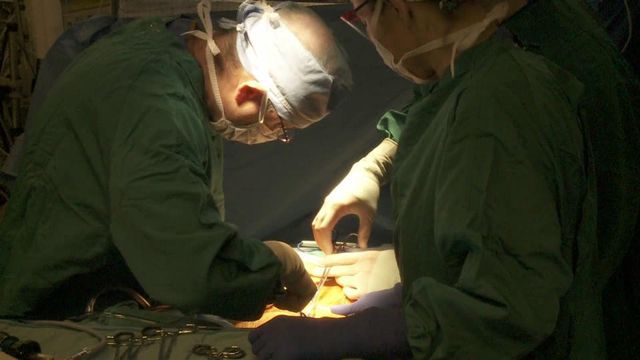Pacemaker offers hope for ALS patients
Device can increase lifespan for those with the disease
Posted — UpdatedDennis Tipton, 60, was diagnosed with ALS in April of last year, but had begun to experienced the effects a few years earlier.
"I got to the point where when I would walk, I would have to hold my head up with my fists," he said.
ALS is a disease of the nerve cells in the brain and spinal cord that control voluntary muscle movement - including the diaphragm, the respiratory muscle necessary for breathing.
That's why Tipton left his home in Tennessee to come to Duke for a new device, a diaphragm pacemaker.
"It will basically delay the decline in their respiratory status," Dr. Mark Berry, a Duke surgeon, said about the device.
Berry says until now there's been no surgical option to help ALS patients.
The diaphragm pacemaker has been used in paralysis patients now for several years, including "Superman" actor Christopher Reeves some years ago. It was approved by the Food and Drug Administration for ALS patients last fall.
Dr. Raymond Onders with University Hospital in Cleveland helped develop the device and has collaborated with Duke surgeons for use in ALS patients.
"We wish we had the cure for ALS," He said. "But what we do is delay their need for a ventilator."
The device consists of four electrodes attached to the diaphragm to stimulate the muscle, and an external battery powered pulse generator.
Tipton was apprehensive at first, but now he's glad he has the device.
• Credits
Copyright 2024 by Capitol Broadcasting Company. All rights reserved. This material may not be published, broadcast, rewritten or redistributed.





